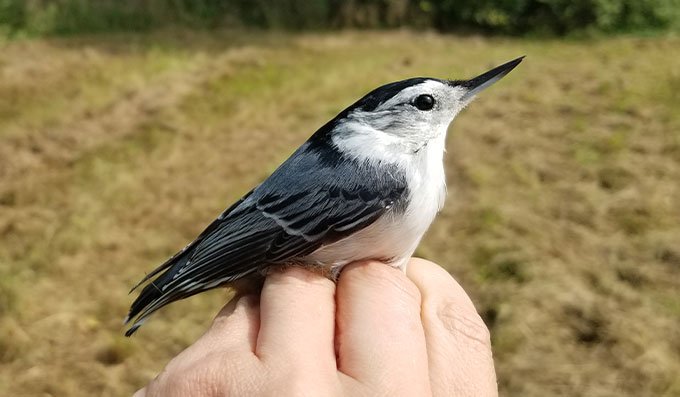By now, it’s no secret that the phrase “bird brain” should be a compliment, not an insult. Some of our feathered friends are capable of complex cognitive tasks, including tool use (SN: 2/10/23). Among the brainiest feats that birds are capable of is vocal learning, or the ability to learn to mimic sounds and use them to communicate. In birds, this leads to beautiful calls and songs; in humans, it leads to language.
The best avian vocal learners, such as crows and parrots, also tend to be considered the most intelligent birds. So it’s natural to think that the two traits could be linked. But studies with smart birds have found conflicting evidence. Although vocal learning may be linked with greater cognitive capacity in some species, the opposite relationship seems to hold true in others.
Now, a massive analysis of 214 birds from 23 species shows that there is indeed a link between vocal learning and at least one advanced cognitive ability — problem-solving. The study, described in the Sept. 15 Science, is the first to analyze multiple bird species instead of just one.
To compare species, biologist Jean-Nicolas Audet of the Rockefeller University in New York City and colleagues had to devise a way to assess all the birds’ vocal learning and cognitive abilities.
For vocal learning, the team scoured the scientific literature to find how many songs and calls a particular species could learn, whether it could learn vocalizations throughout its life or just for a set developmental period and whether it could mimic other bird species. “Our novel way of measuring vocal complexity integrates those three features together,” Audet says.
The researchers next developed cognitive tests that could be adapted for different birds. A test built for a tiny house wren (Troglodytes aedon), for instance, might not work for a bulky mourning dove (Zenaida macroura). Audet and research assistant Mélanie Couture ultimately presented birds with seven cognitive tasks over six days.
Four of the tasks tested problem-solving ability. For example, one task involved pulling a cork lid off a flask to access food inside. The other three tasks assessed learning and self-control, other hallmarks of advanced cognition.
The team then analyzed whether the bird species with more complex vocal learning abilities, such as bigger song repertoires, mimicry and lifelong learning, also performed better on their intelligence tests.
Problem-solving, but not learning or self-control, is strongly associated with more complex vocal learning in birds, the researchers found. “The more advanced vocal learning ability, the more advanced problem-solving skills,” says study coauthor Erich Jarvis, a biologist at Rockefeller University.
Take the tufted titmouse (Baeolophus bicolor). This species learns around 63 vocalizations and can learn throughout its life. It completed the problem-solving tasks faster than the brown-headed cowbird (Molothrus ater), which learns only about nine vocalizations within a set developmental window.

The new finding is a “very convincing, positive result,” says William Searcy, a biologist at the University of Miami who studies birdsong. Audet’s team also found a link between complex vocal learning, better problem-solving ability and bigger brains relative to body size. That could partially explain the result, Searcy says. A bigger brain is likely necessary to excel at both vocal learning and problem-solving.
The researchers saved the brains of some of the birds, so they next hope to search for the genes underlying the linked traits. That work could have implications for scientists’ understanding of how human language evolved. “There is a chance that we will discover genes related to problem-solving and vocal learning that are possibly also used in humans for those same behaviors,” Audet says.


